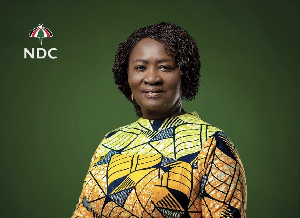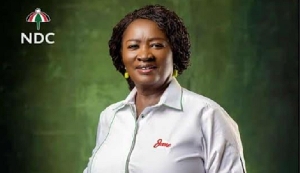 Kwame Achampong-Kyei, Executive Chairman of the GLICO GROUP
Kwame Achampong-Kyei, Executive Chairman of the GLICO GROUP
The Executive Chairman of the GLICO GROUP, Kwame Achampong-Kyei, has called on the insurance industry to consider directing their product development towards helping Ghana achieve its Sustainable Development Goals (SDGs) targets.
He believes that in geographic areas where there are marked instances of poverty, young people can take advantage of opportunities with insurance (especially at the micro level) to learn a skill, stay in school or invest savings in starting a business.
“But for this to happen it is important that players in the financial sector begin to look at micro-insurance and micro-credit mechanisms that provide a springboard for these young people to get out of poverty,” he added.
His call comes at a time when the GLICO GROUP is seeking to consolidate the gains it has made in micro-insurance and has begun looking at exploiting the opportunities arising from government’s attempt to deepen social protection for marginalized groups.
Ghana has been actively involved in the process to agree on the Sustainable Development Goals (SDGs) since consultations began in 2012. As the successors to the Millennium Development Goals (MDGs), the SDGs, and the underpinning Agenda 2030, sought from the beginning to be inclusive and participatory.
Ghana was also the first country in Sub-Saharan Africa to reduce poverty by half and thus met the Millennium Development Goal 1. Nevertheless, deep poverty remains in most rural areas, especially in the three northern regions. In urban areas, where poverty incidence has seen some substantial decline, greater disparities and inequalities are being noticed. The overall survival rates of children in Ghana have improved over the past ten years. Malaria, however, is still the leading cause of death for children under five years, and malnutrition is a significant indirect cause of child mortality.
This makes the SDG 1 & 3 (no poverty and good health and wellbeing, respectively) critical for the Ghanaian context and it is imperative that social enterprises and the financial services sector, for instance, begin to look at these areas in terms of product development for marginalized groups.
Fortunately, the United Nations shares in this agenda. It believes the insurance sector plays a critical role – as investor and underwriter – in supporting resilience, sustainable development and enabling other investments, as captured in some of its recent reports. As an investor, the insurance industry has significant assets that can be invested in projects supporting the SDGs. Also, as an underwriter, it finances rapid response to disasters but also can incentivize investments that support sustainability (such as in climate-smart infrastructure, food security, and resilience), de-risk investments, pool risks, and provide risk pricing to creditors. In the area of micro insurance, it can offer services that encourages savings as well as providing protection for poverty-stricken geographical areas.
It is as a result of this growing acknowledgement of the link between the insurance sector and social development amongst stakeholders that Mr. Kwame Achampong-Kyei suggests that “…policymakers, communities and families should begin to look at innovative, commercial low investments and perhaps, non-profit initiatives that will help create vast opportunities to deprived youth especially.” He also believes, going forward, social enterprises and companies like his own insurance companies (GLICO) should become the pivots around such an agenda, urging those in the sector to put their shoulders to the wheel.












